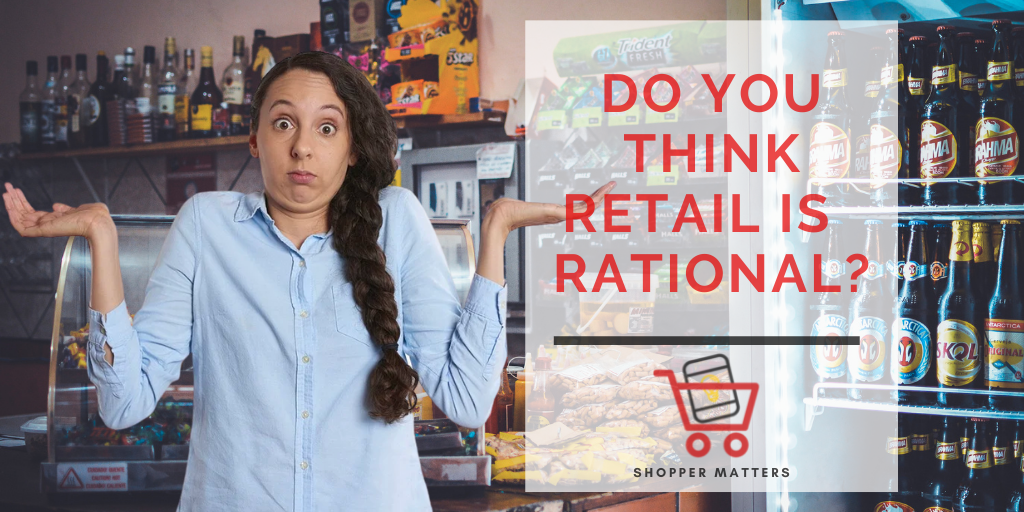IS RETAIL RATIONAL?
Do you think retail is rational? Retailers are always looking for ways to sell more merchandise and increase profits, leading to some pretty unusual practices. Sometimes they’ll offer an item at a discount so that they don’t have to put it on clearance even though that means taking a loss on the sale of goods. Other times, retailers will take risks with new ideas and concepts to attract customers who might never have come in otherwise. Retail often falls prey to a “monkey-see, monkey-do” approach.
And, then there’s the constant back-and-forth between expansion and acquisition and contraction and sell-offs. There are no guarantees that these decisions will pay off or be profitable for them in the end, right? Wrong! It turns out that retail isn’t as crazy as you think when you consider the speed at which retail operates and the need to generate cash flow and returns for investors who want their money back at the end of the day.
The Retail Slump
Before COVID, and when taken in aggregate, much of the retail industry had been in a slump for years. During COVID it doesn’t seem to be getting better anytime soon. Much of the apparent “retail slump” is caused by the massive shift towards online shopping. The retail industry has been using technology in various ways to try to catch up. Retail has invested in technology to help improve the customer experience.
However, retail is not a rational industry, so these technology investments don’t always make sense to the average person. Some of the technologies retail is investing in include beacons, chatbots, and augmented reality. Some of these will be winners and some losers.
Retailer See, Retailer Do?
Retail often falls prey to the social proof tendency and follows a “monkey-see, monkey-do” approach. Retailers often imitate the behavior of their competitors without thinking critically about whether or not it is the right thing to do. They also tend to rely on the opinions of others to make financial decisions, rather than considering the facts and making an informed decision for their own business.
Recently, investors proposed that Kohl’s and Macy’s split their legacy retail operations from their digital companies. The resulting two entities of each could then contract to maintain the omnichannel experience for customers.
Again, retail is not rational. Retailers considering splitting their brick-and-mortar stores from their e-commerce operations may not be making the right decision. Significant evidence suggests that retailing both online and offline at the same time allows companies to better compete on price and selection while still drawing customers into physical stores.
The Advent of Retail Media Networks
Building Retail Media networks might at first glance seem like a move leveraging a “follow-the-leader” strategy. Retailers of all sizes are looking to leverage their digital relationship with customers and grow first-party data by creating proprietary media networks. In-house media companies help brands promote new and relevant products, services, and offers based on deep customer relationships and insights.
For years, retailers such as Amazon and Walmart have been at the forefront of this trend; they’ve seen a need for more personalized retail marketing strategies that better connect with shoppers through real-time information about their shopping habits. According to Retail Dive, “Walmart is leveraging its first-party data (information gleaned from loyalty card data) internally as well as partners like Nielsen…to develop predictive analytics models that can accurately identify new retail trends and then use those insights to create innovative retail campaigns that pique shoppers’ interest even further.”
These retail media companies can transform retail marketing by linking content creation with distribution across multiple retail channels, including store signage, mobile apps, social media feeds, email newsletters, TV commercials, or online advertising campaigns. Retailers can use this type of retail marketing to engage more deeply with customers while also gaining valuable insight into how they communicate about themselves.
Beyond selling more, retail media networks also bring in additional “media” dollars that would have been spent elsewhere.
The retail industry is rapidly changing. While it is clear that retail is not rational all the time, more often than not, retail does make smart bets (but not all the time). So, do you think retail is rational?





